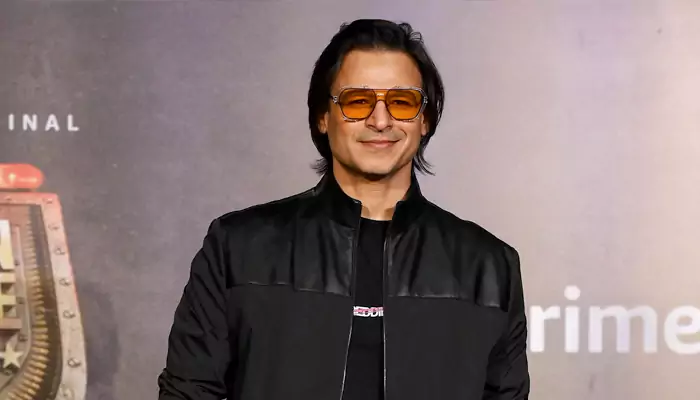
From dazzling debut to painful silence and bold reinvention, Vivek Oberoi’s journey reflects resilience in Bollywood’s unforgiving arena
When Vivek Oberoi first appeared on screen in Ram Gopal Varma’s Company (2002), it felt as if a new chapter in Bollywood had opened. His raw performance as a young gangster did not simply introduce him—it announced him. Awards soon followed, and so did admiration from critics who saw in him a rare combination of intensity and charm. Soon after, Saathiya revealed his softer side, proving he could embody romance as convincingly as he could menace. Few newcomers had entered the industry with such a range.

In the early years, his career seemed unstoppable. Films like Yuva, Masti, Omkara, and Shootout at Lokhandwala added layers to his image. He was the kind of actor who could disappear into a role, whether playing a conflicted lover, a reckless friend, or a ruthless criminal. Yet, the promise of stardom came under strain. A controversy off-screen altered his standing in the industry. The politics of power, alliances, and rivalries overshadowed his craft. Slowly, offers began to dwindle. The actor who once seemed destined for the very top suddenly found himself struggling to hold on.
Vivek has often spoken of that difficult phase with disarming honesty. He admitted to feeling abandoned by the very industry that had initially embraced him. The silence that followed the delivery of successful films was, in his own words, deafening. Those years tested him, not only as an artist but as a person. Depression and self-doubt crept in. Yet, there was also resilience. Rather than letting bitterness define him, he chose to search for meaning beyond the spotlight.
When acting opportunities became scarce, Vivek refused to succumb to bitterness. Instead, he turned to business. Over the years, he built Karma Infrastructure in real estate, Mega Entertainment in event management, and co-founded ventures that stretched from Dubai to Bengaluru. His jewellery brand, Solitario, promotes lab-grown diamonds, while his agri-tech platform, Agribid, connects farmers with buyers, cutting out the middlemen. In Dubai, his BNW Development launched ambitious real estate projects, and he has spoken about raising over a billion dollars for ventures that marry technology with entrepreneurship. This expansion has elevated his net worth to over ₹1,200 crore, placing him among India’s most successful actor-entrepreneurs.

Even as his business world flourished, the actor in him never left. Vivek’s comeback was careful and deliberate. In 2017, he entered the digital space with Inside Edge, Amazon Prime’s first Indian original series. As Vikrant Dhawan, the smooth yet menacing puppet master of a cricket league, he delivered a performance that earned wide praise. The show itself gained international recognition, including an Emmy nomination, and marked his strong return to the screen.

He continued to explore roles with depth. In 2019, he surprised audiences with his Malayalam debut in Lucifer, holding his own opposite Mohanlal in a powerful antagonist’s role. Later, in Dharavi Bank, a web series set in Mumbai’s gritty underbelly, he brought intensity back to his performances. His role in Rohit Shetty’s Indian Police Force further confirmed that his screen presence remains undiminished. These projects may not have been conventional blockbusters, but they reflected an artist choosing substance over splash. Critics noticed this maturity, describing his recent work as layered and restrained.
Vivek has spoken with unusual candour about the trials of his career. “My career evaporated because people in power decided I should not work here anymore,” he once admitted. Yet he also recalls how his mother’s words gave him perspective: “Don’t feel like a victim. Be a hero to someone else.” This advice reshaped his outlook. Rather than clinging to what was lost, he turned to what could still be built. In public, he has become a voice on mental health, resilience, and the importance of finding identity beyond stardom. His story is not only about setbacks—it is about how to rise from them with renewed vision.